 Aberdeenshire
Aberdeenshire Angus
Angus Argyll & Bute
Argyll & Bute Ayrshire
Ayrshire Bedfordshire
Bedfordshire Berkshire
Berkshire Buckinghamshire
Buckinghamshire Cambridgeshire
Cambridgeshire Central Scotland
Central Scotland Cheshire
Cheshire Cornwall
Cornwall Cumbria
Cumbria Derbyshire
Derbyshire Devon
Devon Dorset
Dorset Dumfries & Galloway
Dumfries & Galloway Durham
Durham East Sussex
East Sussex East Yorkshire
East Yorkshire Edinburgh & Lothian
Edinburgh & Lothian Essex
Essex Fife
Fife Glasgow
Glasgow Gloucestershire
Gloucestershire Greater Manchester
Greater Manchester Hampshire
Hampshire Herefordshire
Herefordshire Hertfordshire
Hertfordshire Highlands
Highlands Inverness-shire
Inverness-shire Kent
Kent Lancashire
Lancashire Leicestershire
Leicestershire Lincolnshire
Lincolnshire Lochaber
Lochaber London
London Merseyside
Merseyside Midlands
Midlands Norfolk
Norfolk North Wales
North Wales North Yorkshire
North Yorkshire Northamptonshire
Northamptonshire Northumberland
Northumberland Nottinghamshire
Nottinghamshire Orkney Islands
Orkney Islands Oxfordshire
Oxfordshire Perthshire
Perthshire Scottish Borders
Scottish Borders Shetland Islands
Shetland Islands Shropshire
Shropshire Somerset
Somerset South Wales
South Wales South Yorkshire
South Yorkshire Staffordshire
Staffordshire Suffolk
Suffolk Surrey
Surrey Tyne & Wear
Tyne & Wear Warwickshire
Warwickshire West Sussex
West Sussex West Yorkshire
West Yorkshire Western Islands
Western Islands Wiltshire
Wiltshire Worcestershire
Worcestershire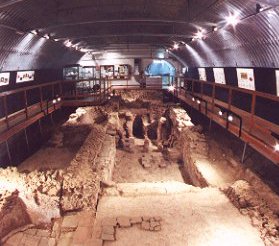
At Welwyn Roman Baths you can see the remains of a Roman bath-house, part of a villa built 1,700 years ago. Ingeniously preserved in a vault underneath the A1 (M), it provides a fascinating insight into how the Romans bathed, with a series of hot and...

Wroxeter (or 'Viroconium') was the fourth largest city in Roman Britain. It began as a legionary fortress and later developed into a thriving civilian city, populated by retired soldiers and traders. Though much still remains below ground, today the ...
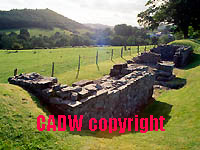
Remains of stone defences and gates of a Roman auxiliary fort, initially established about A.D. 75....
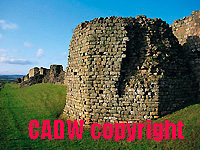
Tribal capital of the Silures (Venta Silurum) - impressive fourth-century walls standing up to 17 feet (5.2m). Excavated houses, forum-basilica, and a Romano-British temple also remain....

Remains of an auxiliary Roman fort, probably established in the late 70s A.D. and modified through to the late fourth century. Adjacent to the Roman fort is Segontium Roman Museum, which is run by an independent trust, Segontium Cyf. To find out more...
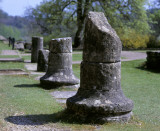
Remains of one of the largest Romano-British villas in the country. Set in a wooded Cotswold combe, the site was excavated in 1864 and retains a Victorian atmosphere. Over a mile of walls survives and there are several fine mosaics, two bathhouses, h...

Excavated Roman bathhouse and site museum. Letocetum was an important staging post on the Roman military road to North Wales. Foundations of a mansio (Roman inn) and bathhouse can be seen, and many of the excavated finds are displayed in the m...
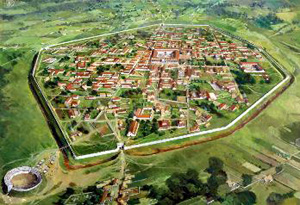
In the Iron Age, the region in which Silchester is located was part of the tribal territory of the Atrebates. During the Roman period their tribal centre became known as Calleva Atrebatum, growing into a substantial settlement of over 400,000 square ...
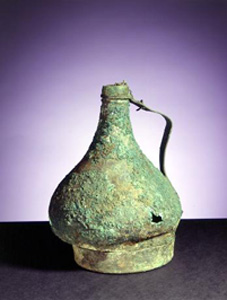
Lullingstone Roman Villa is among the most outstanding Roman villa survivals in Britain, Lullingstone provides a unique all weather family day out. Set in the attractive surroundings of the Darent Valley in Kent, the villa was begun in about AD 100, ...
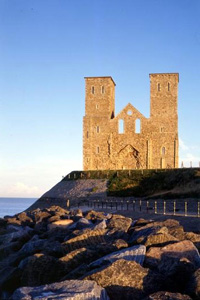
Reculver Towers and Roman Fort is an imposing landmark, the twin 12th-century towers of the ruined church stand amid the remains of an important Roman 'Saxon Shore' fort and a Saxon monastery. Richborough Roman Fort is nearby....
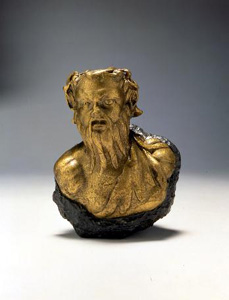
The Richborough Roman Amphitheatre is evocatively sited amid the East Kent marshes, Richborough is perhaps the most symbolically important of all Roman sites in Britain, witnessing both the beginning and almost the end of Roman rule here. Explore...

The remains of a large and luxurious villa built c. AD 250, with a bathhouse complex and possibly the shrine of a water spirit....

North Leigh Roman Villa are now the remains of a large, well-built Roman courtyard villa. The most important feature of North Leigh Roman Villa is a near complete mosaic tile floor, patterned in reds and browns....
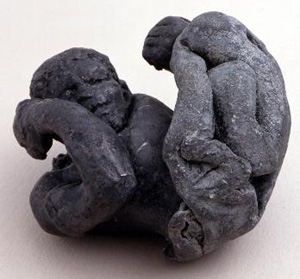
Wall was an important staging post on Watling Street, the Roman military road to North Wales. It provided overnight accommodation for travelling Roman officials and imperial messengers. The foundations of an inn and bathhouse can be seen, and many of...

Chester Roman Amphitheatre is the largest Roman amphitheatre in Britain, used for entertainment and military training by the 20th Legion, based at the fortress of 'Deva' (Chester). Excavations by English Heritage and Chester City Council in 2004-5 re...
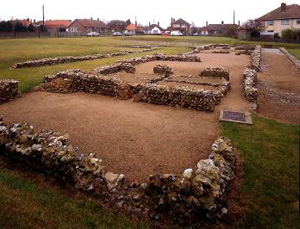
Caister Roman Site is the partial remains of a Roman Saxon Shore fort, operating in partnership with Burgh Castle, including wall and ditch sections and building foundations....
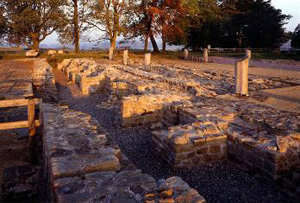
For those who want an introduction to Hadrian's Wall in Cumbria, or an overview of its history and appearance at one single site, Birdoswald is the place to visit.
Not only can a Roman fort, turret and milecastle all be seen here: but also, to the...
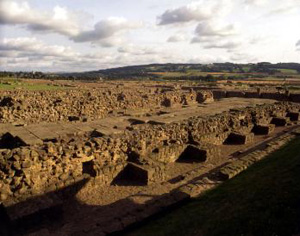
Visitors to Corbridge can walk along the main street of this Roman garrison town, flanked by the remains of granaries, a fountain house, markets, workshops and temples.
Astride the intersection of Roman Dere Street and Stanegate, Corbridge was in...

Piercebridge Roman Bridge are the remains of a Roman bridge, which once led to Piercebridge Roman Fort....
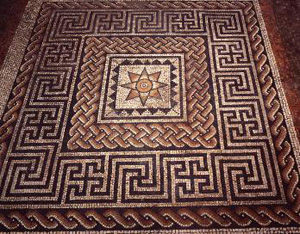
Aldborough, among the northernmost urban centres in the Roman Empire, succeeded Stanwick as the tribal stronghold of the Romanised Brigantes, the largest tribe in Britain. One corner of the defences is clearly laid out amid the towering trees of a Vi...
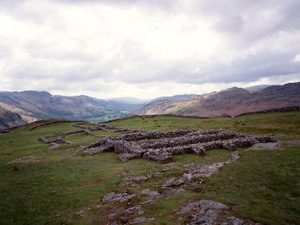
This remote and dramatically-sited fort was founded under Hadrian in the 2nd century. Well-marked remains include the headquarters building, commandant's house and bath-house. The site of the parade-ground survives beside the fort, and the road which...
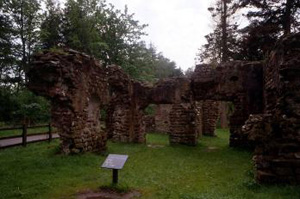
The remains of the bath house of Ravenglass Roman fort, established in AD 130, are among the tallest Roman structures surviving in northern Britain: the walls stand almost 4 metres (13 feet) high. The fort at Ravenglass (whose earthworks can be seen...
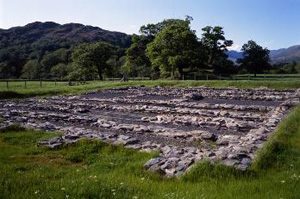
The Ambleside Roman Fort is a well-marked remains of a 2nd-century fort with large granaries, probably built under Hadrian to guard the Roman road from Brougham to Ravenglass and act as a supply base....
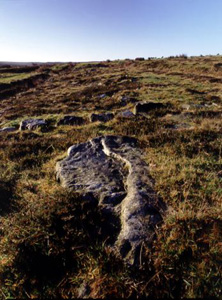
Wheeldale Roman Road is a mile-long stretch of Roman road across the moors, still with its hard core and drainage....

The Dewa Roman Experience in Chester Cheshire is an actual Dewa Roman fortress is now buried under modern day Chester, but it lives on through the Dewa Roman Experience. Most museums have exhibits that are available to the visitor, but here we have a...

The site of a Roman watch tower, one of a series running between Ardoch and the Tay, along the Gask Ridge dating to the first century....

A good stretch of the Roman road running from Corbridge beside Hadrian's Wall to Cramond on the Firth of Forth. Beside the road are quarry pits from which the gravel for building the road was taken. The road continues over the Fala Flow site of speci...
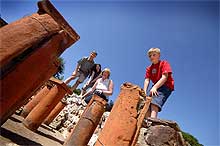
Rockbourne is near Fordingbridge in a picturesque and peaceful part of Hampshire close to the New Forest. The Roman villa once stood in the centre of a large farming estate, and is the largest known villa in the area. Its history spans the period fro...
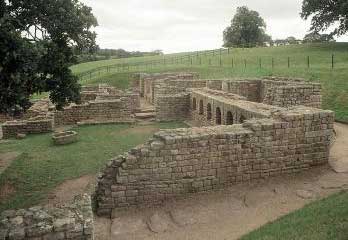
Chesters Roman Fort in Northumberland was built to guard the Roman bridge which carried Hadrian’s Wall over the River North Tyne. It has the best preserved remains of a cavalry fort in Britain. Explore the foundations of the headquarters building a...

Remains of a Roman fort at the eastern end of Hadrian's Wall. Interactive museum, viewing tower and reconstructions of a bath house and Wall section....

In the middle of Bath you'll find the remains of one of the best religious spas from acient times. You can view the temple of Minerva who was the goddess of thermal spring. Walk in the foot steps where the Romans once walked....

Set in the stunning location on the cliffs looking over the Solway Firth, positioned next to a Roman fort dated around the first Century AD, then rebuilt whilst Hadrian was in power. The museum houses one of the largest groups of inscriptions and Rom...

Binchester Roman Fort was one of the largest Roman forts in County Durham. A small section has been excavated and is open to public viewing. But the majority of the fort are still buried in the nearby fields....
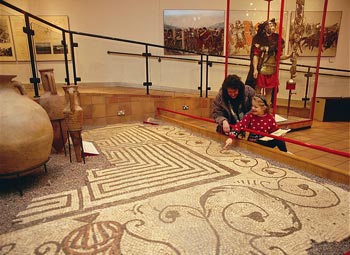
Step back in time at the National Roman Legion Museum and explore life in a far-flung outpost of the mighty Roman Empire. Wales was the furthest outpost of the Roman Empire. In AD 75, the Romans built a fortress at Caerleon that would guard the regio...
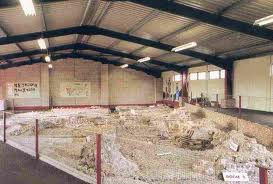
Crofton Roman Villa is the only villa open to the public in Greater London. It was inhabited from about AD 140 to 400 and was the centre of a large farming estate. Today you can see the remains of 10 rooms protected inside a public viewing bui...

The remains of a small temple to the native god 'Antenociticus', in the 'vicus' (civilian settlement) which stood outside Benwell fort....

Based around a fictional Roman frontier fort and it's neighbouring Celtic village at Murton Park, near York, the on site Roman courses offer school pupils the chance to join the Roman Army for a day or half day.
Children learn to parade and drill ...

Arbeia Roman Fort housed a garrison and once guarded the entrance to the River Tyne. The excavated remains, stunning reconstructions of original buildings and finds discovered at the site combine to give a unique insight into life in Roman Britain....

The Roman Theatre of Verulamium is a one off. Built around 140AD it is the only instance of its kind in Britain, being just a theatre with a stage rather than an Amphitheatre.
The arena would have been used for various things from dancing to reli...

The Roman site at Ribchester, Bremetennacum Veteranorum, comprised a fort and civilian settlement or vicus. The earliest Roman fort in Ribchester was established in the early 70s AD as part of a network of defensive forts across northern Britannia. O...
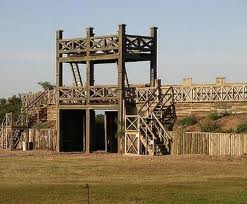
It's A.D. 60; the Iceni of East Anglia led by the legendary Boudica have rebelled against Roman rule, and have just been defeated in a terrible battle fought somewhere in the Midlands. As a result the Romans are building a series of fortifications...

Cawfields Roman Wall (Hadrian's Wall) is a fine stretch of Hadrian's Wall on a steep slope, with turrets and an impressive milecastle, probably built by the Second Legion....

The Roman Palace and Gardens at Fishbourne showcases the remains of the largest and earliest Roman residence in Britain which was in its splendour in the first century AD and is now one of the most beautiful and comprehensive archaeological experien...

Bignor Roman Villa is the stunning remains of a Roman home and farm with world-class mosaic floors in a spectacular Downland setting.
Learn why the Roman owners chose to develop such a magnificent settlement at Bignor in the 3rd Century AD and how...

The remains of a roman villa or country house/farmhouse of the late 3rd and 4th Century AD with mosaic flooring, heating system and bath suite. Located by Long Cross Road, in Lawrence Weston. To view the remains collect a key from Blaise Castle House...
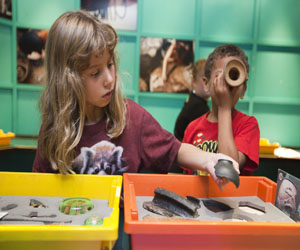
Descend 100 years with each step or by lift to the Roman street level. Stroll through the marketplace, look inside recreated Roman rooms, and discover amazing finds including a hoard of hidden treasure. See how little has changed since Roman times...